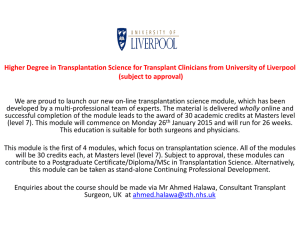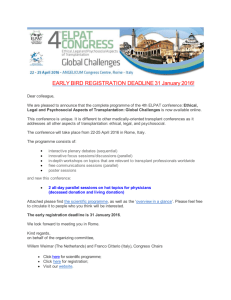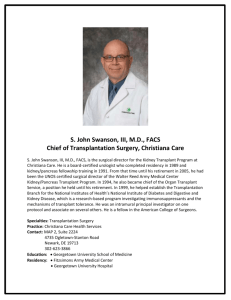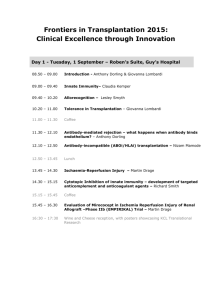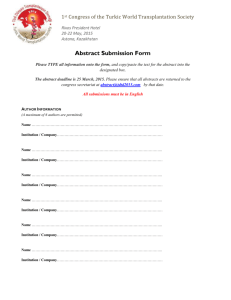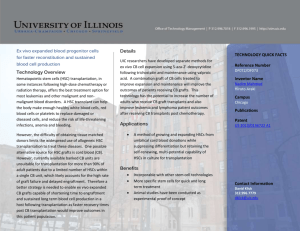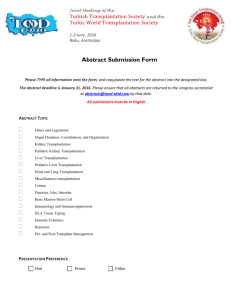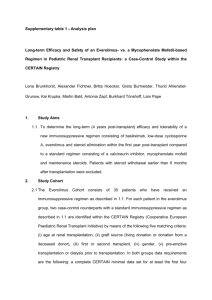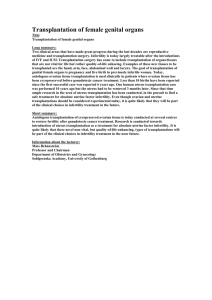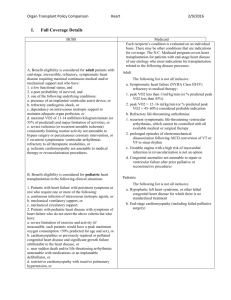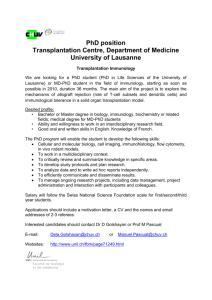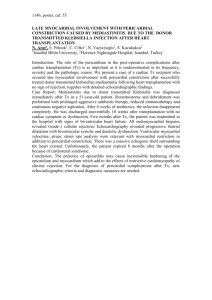Beca C
advertisement
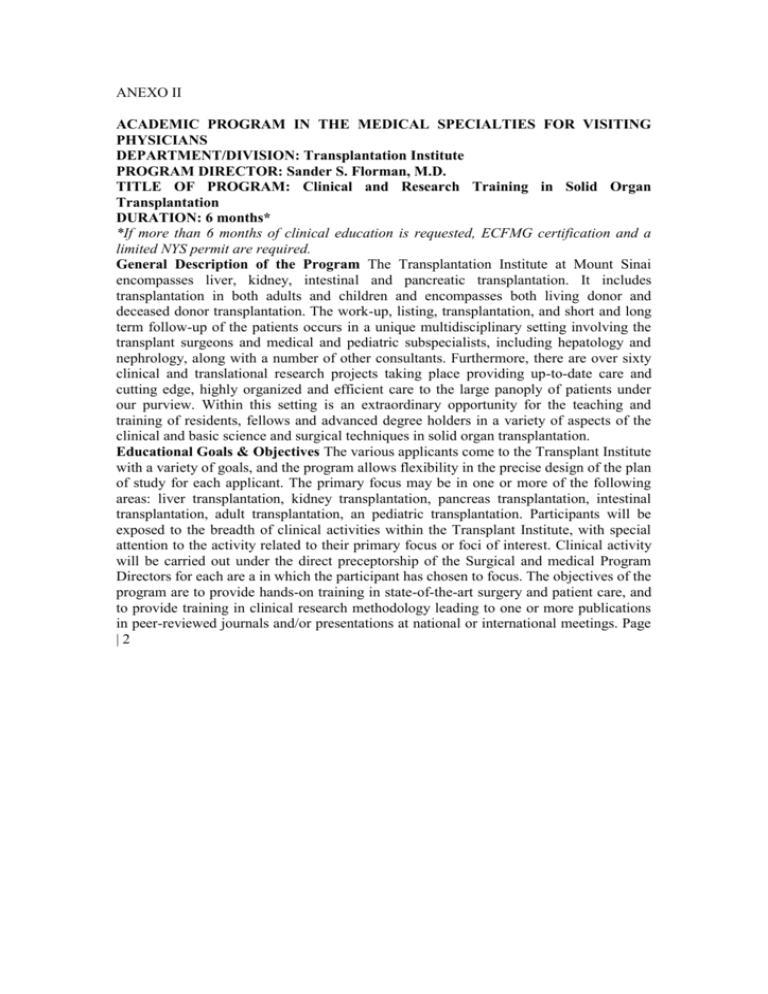
ANEXO II ACADEMIC PROGRAM IN THE MEDICAL SPECIALTIES FOR VISITING PHYSICIANS DEPARTMENT/DIVISION: Transplantation Institute PROGRAM DIRECTOR: Sander S. Florman, M.D. TITLE OF PROGRAM: Clinical and Research Training in Solid Organ Transplantation DURATION: 6 months* *If more than 6 months of clinical education is requested, ECFMG certification and a limited NYS permit are required. General Description of the Program The Transplantation Institute at Mount Sinai encompasses liver, kidney, intestinal and pancreatic transplantation. It includes transplantation in both adults and children and encompasses both living donor and deceased donor transplantation. The work-up, listing, transplantation, and short and long term follow-up of the patients occurs in a unique multidisciplinary setting involving the transplant surgeons and medical and pediatric subspecialists, including hepatology and nephrology, along with a number of other consultants. Furthermore, there are over sixty clinical and translational research projects taking place providing up-to-date care and cutting edge, highly organized and efficient care to the large panoply of patients under our purview. Within this setting is an extraordinary opportunity for the teaching and training of residents, fellows and advanced degree holders in a variety of aspects of the clinical and basic science and surgical techniques in solid organ transplantation. Educational Goals & Objectives The various applicants come to the Transplant Institute with a variety of goals, and the program allows flexibility in the precise design of the plan of study for each applicant. The primary focus may be in one or more of the following areas: liver transplantation, kidney transplantation, pancreas transplantation, intestinal transplantation, adult transplantation, an pediatric transplantation. Participants will be exposed to the breadth of clinical activities within the Transplant Institute, with special attention to the activity related to their primary focus or foci of interest. Clinical activity will be carried out under the direct preceptorship of the Surgical and medical Program Directors for each are a in which the participant has chosen to focus. The objectives of the program are to provide hands-on training in state-of-the-art surgery and patient care, and to provide training in clinical research methodology leading to one or more publications in peer-reviewed journals and/or presentations at national or international meetings. Page |2 Didactic Program** The attached weekly schedule of conferences and activities within the Transplant Institute demonstrates a large number of opportunities for formal teaching and learning on an ongoing basis. Participants are expected to take part in all educational activities related to their primary focus or foci, as well as selected activities in related areas. In addition, participants will have the opportunity to audit courses within the institutional K-30 clinical research training program. Biweekly meetings with a preceptor will take place to develop and monitor progress of research projects. In addition, there will be ample opportunity to set up independent tutorials to further train the individual in specific areas of clinical, surgical and research work. **Hours per week in Grand Rounds, Journal Club, lectures, etc. should be specified. Hours in Didactics per Week: 10 Clinical Activities The participants will take part in scheduled, emergent and urgent surgeries relating to their particular area or areas of focus. Currently over 300 solid organ transplants take place each year, providing ample opportunity for observing multiple procedures. Participants will also accompany procurement staff for deceased donor, multi-organ harvesting. Participants will also join the clinical team on daily interdisciplinary rounds on the transplant service. Hours in Clinical Activity per Week: Variable, averaging 50-60 hours Describe Method of Evaluation Evaluation will be carried out on an ongoing basis during the biweekly sessions with the preceptor. There will be no formal examination. It is expected that each participant will produce at least one publication or presentation as described above. A written evaluation will be completed by the preceptor and other members of the transplant team at the completion of the program.
